Glenda Jackson (1936-2023)
 Friday, June 16, 2023 at 11:30PM
Friday, June 16, 2023 at 11:30PM 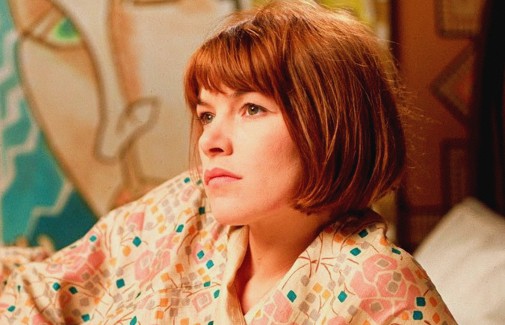 WOMEN IN LOVE (1969) Ken Russell
WOMEN IN LOVE (1969) Ken Russell
Some people feel like they'll never die, their presence bound to eternity, shackled to forever. Deep down, we know it's not true, that no one lives forever. Self-delusion is easier than questioning those innocent untruths that, like laws of the universe, make life seem less chaotic. For me, Glenda Jackson was one of those impossible constancies, someone who wouldn't, couldn't die. And yet, here we are. This past Thursday, June 15th, news broke that the two-time Oscar winner turned politician, turned back to actress, was gone. She died peacefully at her London home, leaving behind a legacy whose majesty is hard to overstate.
On this sad occasion, let's look back to that inheritance, remember the glorious Glenda Jackson and what made her so uniquely great…
Born in Birkenhead on May 9th, 1936, Glenda Jackson was named in honor of Hollywood blonde Glenda Farrell, a fast-talking veteran of 30s gangster pictures with a memorable screen persona that inspired the character of Lois Lane. Her family was typical working-class stock, her father a bricklayer, mother a woman of many trades, whatever would keep food on the table. Like her namesake, Glenda Jackson would find her way to the stage, playing in the Townswomen's Guild for two years before winning a prized RADA scholarship. There, she learned classical technique, presentational style, and crisp diction that would define her future work.
Success wasn't instantaneous, years spent oscillating between stage appearances, hostess gigs, managerial positions, clerical jobs and waiting tables. When remembering those harsh years, she'd describe many of these occupations as soul-destroying. By the time she was accepted into the Royal Shakespeare Company after multiple auditions, it seemed like her starlet chance had passed. Then again, Jackson was never interested in the celebrity that could come with her vocation, preferring to be a working actress through and through. No wonder many came to describe her as the ultimate professional.
Though, as with all things, the same word could taste differently depending on the tongue which savored it. For Michael Caine, it was a great compliment. For director Joseph Losey a complaint. For Oscar presenter Juliet Mills, it might have been something of a dispassionate describer. Or, perchance, a self-evidence that still ought to be spoken aloud when presenting the absent thespian with her first Best Actress Academy Award. Before the Hollywood honors, however, much had to happen, including Jackson's first forays in front of the camera, starting with some uncredited TV appearances and as a background player in the kitchen sink classic This Sporting Life.
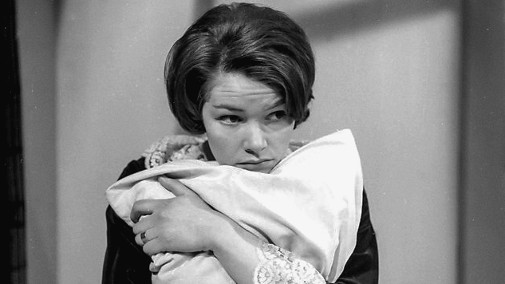 THE WEDNESDAY PLAY: HORROR OF DARKNESS (1965) Anthony Page
THE WEDNESDAY PLAY: HORROR OF DARKNESS (1965) Anthony Page
Aired on March 10th, 1965, some two years before the Sexual Offences Act of 1967 decriminalized homosexuality in England and Wales, Horror of Darkness was produced as part of The Wednesday Play anthology series. In it, Jackson played her first lead role in filmed drama, Cathy, an artist's partner who finds herself bemused by a new lodger, one of her boyfriend's art school friends. The man perturbs the couple's dynamic, illuminated compromises made but not acknowledged, silence turned deafening. Even this early, Jackson's ability to project a sense of prickly intelligence is on full display, as is the actress' instinct for when to change tactics, break composure, shatter into a million pieces.
A moment of horror stays with you long after the credits roll and the screen turns dark. It's a face of horror, Cathy's cold shock transformed, muzzled hush ruptured by screams of aberrant fury when someone dares to comfort her. One can imagine Jackson learning the ways of such emotional laceration under the tutelage of director Peter Brook, with whom she worked during her four years at RSC as part of his Theater of Cruelty season. Both artists' greatest masterpiece would be born from their collaboration – the madhouse blues of Marat/Sade, where she played the critical role of assassin Charlotte Corday.
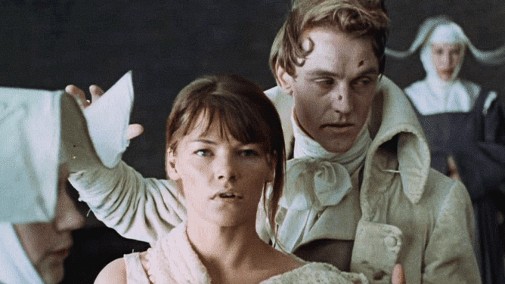 MARAT/SADE (1967) Peter Brook
MARAT/SADE (1967) Peter Brook
In 1967, Brook turned his staging into film, with Jackson among the actors to transfer mediums. Her performance is a thing of unholy wonder, the artifice of acting made sharp, cutting, but as fragile as a gossamer thin butterfly wing. The hunger of an ambitious thespian sinking their teeth into an opportunity like no other is inescapable, vibrating off the screen to gestate in the spectator's gut. No wonder filmmakers worldwide took notice, among them Larry Kramer. Having written an adaptation of D.H. Lawrence's Women in Love, he wanted Jackson for the role of Gudrun, even though United Artists opposed the idea.
Director Ken Russell was unconvinced on a first meeting, only relenting to Kramer's decision when he set eyes on a print of Marat/Sade. The rest is history, complete with cow-dancing and a love so barbed it can drive a man to suicide and the Motion Picture Academy to its knees. To this day, Glenda Jackson's performance in the 1969 drama remains one of the oddest Best Actress Oscar victories, clashing a reliquary of theatrical tradition with some cinematic sort of primordialism, the abandon of lunatics through a carnal prism. Her magnetism is undeniable even when it's intimidating, the pull a disconcerting force akin to quicksand – deadly.
The stage wouldn't be blessed by Jackson's presence for the next few years, her career exploding all over the big and small screens. In 1971 alone, she made four features, an expansive miniseries, and a guest appearance in a comedy sketch show. Twice she reunited with Russell, first as Tchaikovsky's wife driven to despair in the maximalist experiment of The Music Lovers, then in a small but impactful role in The Boy Friend. For BBC, she delivered the definite portrayal of Elizabeth I in Elizabeth R and replayed the historical part in the film Mary, Queen of Scots. She'd win two Emmys for the miniseries and a Golden Globe nomination for the feature.
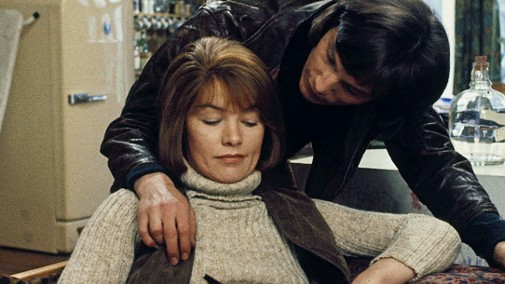 SUNDAY, BLOODY SUNDAY (1971) John Schlesinger
SUNDAY, BLOODY SUNDAY (1971) John Schlesinger
She'd have likely scored another Oscar nomination for that second Elizabeth if not for another 1971 flick – John Schlesinger's account of a bisexual love triangle in Sunday, Bloody Sunday. Glenda Jackson would earn the Academy's attention for that foray into cut-glass realism, full of such wounded rage the screen seems to smolder when framing her flinty gaze. In a particular confrontation scene, the actress reminds her harshest critics that for all the classic training, she could dissect the complexities of natural behavior with surgical precision. Consider how she reacts to the words spilling from her mouth after a pause to gather the thoughts.
Rankled by what she herself has said, Jackson lets us see the monstrous pain by which a soul who architected her unhappiness becomes aware of it, of which limits can't be crossed but were. The terror of looking deep into the mirror, that savage revelation, is a recurrent theme across Jackson's output during this golden decade. Often playing women bristling against the dull comfort of their lives, the thespian could sharpen any edge until it was razor sharp, the better to cut through the character's soul under the camera's watchful eye. That ability makes up the underlying structure of her game in The Romantic Englishwoman, the striking genius of Stevie.
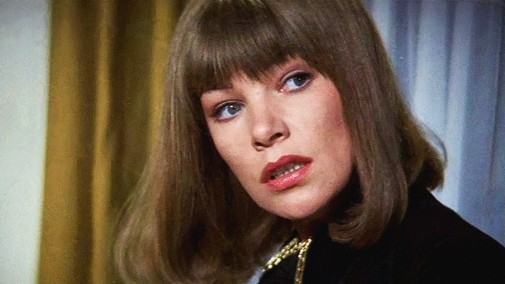 A TOUCH OF CLASS (1973) Melvin Frank
A TOUCH OF CLASS (1973) Melvin Frank
In 1973, she'd explore a different facet of her skill, tackling the matter of a Hollywood-made sex comedy. Starring in A Touch of Class alongside George Segal, Jackson seems an odd fit for the frisky tonalities demanded by Melvin Frank's script and direction. One can hardly ignore the friction between actress and project, between role and performance. That perfect diction, that stern visage, and chilly beauty cut through the bullshit until the entire enterprise is like a chopped-up carcass, slashed chunks of flesh hanging by a sinew thread. I can't say it works, but it's an object worthy of fascination. It's understandable why the Academy saw fit to reward Jackson with another Best Actress statuette. Again, she wasn't there to accept it.
The year A Touch of Class arrived in theaters also marked the actor's grand return to the stage, her original home, kickstarting a resurgence that would see her reach new heights of acclaim. Prosceniums juxtaposed in 1975 when Jackson filmed Hedda and The Maids, based upon RSC productions originally performed for the London public. While the Ibsen would bring her fourth and final Oscar nomination, the Christopher Miles-directed Genet remains more accessible nowadays. It's also the better film, modulating devout fidelity to the original text through small cinematic twists. The red rim of Jackson's eye, reflecting the slivers of light penetrating her dark hiding place in the film's first sequence remains its most powerful image.
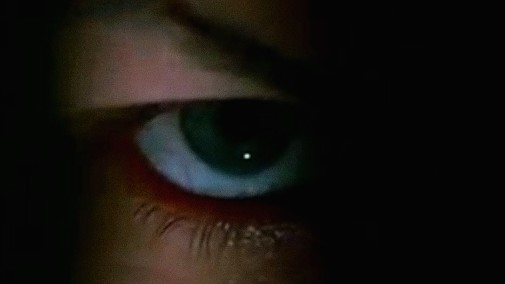 THE MAIDS (1975) Christopher Miles
THE MAIDS (1975) Christopher Miles
As the 70s waned, Hollywood seemed to lose interest in Jackson, perchance ignorant of what to do with such a performer as paradigms shifted in the age of the blockbuster. By the dawn of the 80s, Jackson's American opportunities had dwindled almost exclusively to the realm of television. At the same time, her British films became ever smaller, with the minor exception of Alan Bates' Cannes-competing The Return of the Soldier. In 1981, she achieved her last Emmy and Golden Globe nominations for The Patricia Neal Story, a commonplace exercise in biopic practices that offers a good case study for Jackson's particularities as a performer.
Dramatizing the period when Neal suffered a stroke, survived a coma, and made a triumphant recovery back to the pictures, the TV movie asks Jackson to entertain the possibility of mimicry. She doesn't repudiate it outright but might have been better off if she had. Suddenly, the actress' terse inflexibility emerges as a problem, the accent efforts a storm of inconsistencies. Incapable of self-effacing, Jackson never quite convinces as that other Oscar winner. Still, she triumphs when called upon to portray the process by which Neal lost herself and had to rebuild from nearly scratch. The direct denial of text, the absence of clear speech should denude Jackson of her greatest weapons, sabotage her. Instead, they liberate the performer.
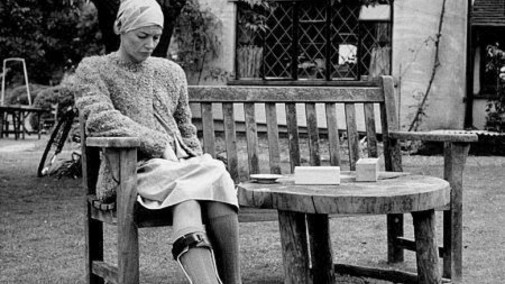 THE PATRICIA NEAL STORY (1981) Anthony Harvey & Anthony Page
THE PATRICIA NEAL STORY (1981) Anthony Harvey & Anthony Page
The results are staggering, exemplifying a paradox within Glenda Jackson's approach to acting, that Catherine Corday collision expanded. For all that rectitude, perfect control, and unwavering self-possession were hallmarks of Jackson's style, some of her most outstanding achievements find her as women struggling to regain those qualities, the capacity to articulate slipping away like smoke escaping the grasp of fingers. Thirty-eight years later, Jackson would return to this territory in Elizabeth Is Missing, another TV movie containing a staggering performance. Compassion and viciousness interlace in this character study of a woman with Alzheimer's, losing sight of time, memory, what's real and what's nightmare.
Produced for BBC One and later aired on PBS for American audiences, Elizabeth Is Missing was part of Jackson's grand return to acting, which further included two King Lears on stage and a Tony-winning stint in Three Tall Women. But what had Jackson been doing in the interim years between waning acting opportunities and this late-period resurgence? British readers will surely know. Indeed, they might have grown up more familiar with the two-time Oscar winner as a figure wholly outside of the acting business. From 1992 to 2015, the always political Jackson turned her back on the performance arts to focus on helping her fellow man as a Labor Party MP.
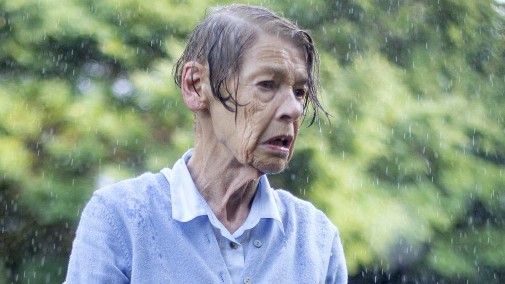 ELIZABETH IS MISSING (2019) Aisling Walsh
ELIZABETH IS MISSING (2019) Aisling Walsh
In the late 90s, she was an Under-Secretary of State for Transport under Tony Blair, but it would be her Parliamentary presence in the first two decades of the 21st century that would consolidate her legacy as an activist and political orator of rare power and even rarer conviction. Several of her interventions in the House of Commons have made the rounds as sharable clips all over social media. The most famous one is undoubtedly her evisceration of Margaret Thatcher's legacy on the occasion of her death. Amid conservative tribute and against her opposition's jeers, Jackson's words were a needed slap in the face, a reminder of the spiritual damage of Thatcherism on the nation.
Jackson's political career lasted for nearly a quarter century, arguably more important than her artistic contributions. Still, in times such as this, let's celebrate it all, including the fearlessness of a perfect professional willing to risk everything, to subvert convention and break the rules. A righteous rebel heart to the very end, as capable of venom as seduction, who never stopped looking forward to a better future and fought to build it, Glenda Jackson will be mourned forevermore.
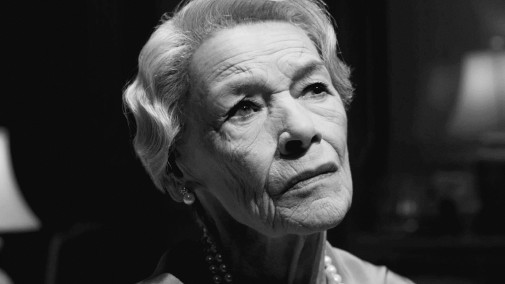 THREE TALL WOMEN (2018) Joe Mantello
THREE TALL WOMEN (2018) Joe Mantello
Please share your thoughts on Glenda Jackson, perchance your favorite of her performances, the most scalding of her Parliament speeches.



Reader Comments (12)
I haven't seen anything she's in as that is something I hope to rectify soon.
The similarities are striking - the vibrant red hair, the absence of appearance altering efforts to create a character or recreate a historical figure, the precision in diction, the uncompromising intelligence evident in every performance, the disinterest in accolades and unwillingness to appear at awards shows to collect them, the life long evidence of theatrical training.
I have always thought of Glenda Jackson as a contemporary version of Katharine Hepburn. It’s a comparison made with the intention of honoring each actress.
So sad she's gone,she was surprisingly in her 80's having a late career surge and I hope her film with Michael Caine gives us one last great film role.
She was 1 on her own,fiercely opinionated,forthright,didn't suffer fools but was a kind and generous actor to work with is what i've read.
10 Personal film favourites
Women in Love
Sunday Bloody Sunday
Triple Echo
A Touch of Class
Hedda
The Incredible Sarah
Stevie
The Return of the Soldier
Business as Usual
Mothering Sunday
Such a political icon here in the UK. Her speeches (the one deriding Thatcher's legacy, as well as the one where she tore Iain Duncan Smith a new one) were the stuff of legend.
I actually haven't seen any of her work, but I think I will follow suit shortly. Sunday Bloody Sunday seems the most appealing to me.
Also, someone cast Jessie Buckley in a biopic about Glenda's early career and transition to politics please!
I was fortunate to see her in Three Tall Women--what a force she was!
What a loss! She was randomly on my mind the day before news of her passing hit, so it felt especially shocking when I read about it. There’s nobody quite like her, though I do often think of Cate Blanchett when watching her (and I’ll be darned if she isn’t a dead-ringer for Florence Pugh in that picture from Marat/Sade). Both of her Oscar wins feel so atypical, I can imagine people watching the films and being a bit perplexed about how she won, but I love how different those performances are from each other. I think my favorite (that I’ve seen) may actually be Sunday Bloody Sunday.
She made some fascinating choices. I look at films like The Maids, The Romantic Englishwoman, and even Beyond Therapy (yikes) and think about someone like Nicole Kidman whose filmography is full of highs and lows but always feels daring and guided more by artistic sensibilities and aspirations than commercial/financial ones.
I bet she was amazing on stage.
Great actress. Still trying to complete her filmography. Last February I saw The Music Lovers and it's still my favourite watch of 2023.
I was not able to see her King Lear when it played in New York but I saw her in Three Tall Women in 2018 and she's dynamite onstage: the resonance and enunciation of that dark voice seems to come from somewhere earthier. She would make a great Erda in Wagner's Ring cycle. I remembered her braying at her fullest voice in Three Tall Women in the third act that sent chills to the enraptured audience. It was equally hair-raising just imagining that the character A was the same actress in Women in Love, Mary, Queen of Scots and The Maids.
In typical un-diva fashion and with a cigarette in one hand she spent some time with those of us who were waiting at the exit gate of Golden Theatre to chat. I forgot what the chat was as I was enraptured by her presence and voice.
Although I loved her a lot in Women in Love, it was her performances in Elizabeth R that meant the most to me. Seeing her masterful command of the language and the screen was something quite exciting to this suburban teenager. Would love to have seen her Lear. RIP Glenda!
Recently watched A Touch of Class and Sunday Bloody Sunday. Amazingly perceptive films that remind us we're perhaps no more sophisticated about human relationships now than people were 50 years ago!
RIP Miss Glenda Jackson. What a remarkable actress!
She was hailed as the new Kate Hepburn in the 70s; her heydays.
She reminds me so much of Cate Blanchett, no less both their iconic turns as Queen Elizabeth I, & their strong masculine intellectual vibes onscreen!
Maybe Queen Cate will play Queen Glenda someday!
Hi guys! your information is so excellent. However, have you joined happy wheels? You can control your bike to conquer the track. Try your best to overcome many challenges.